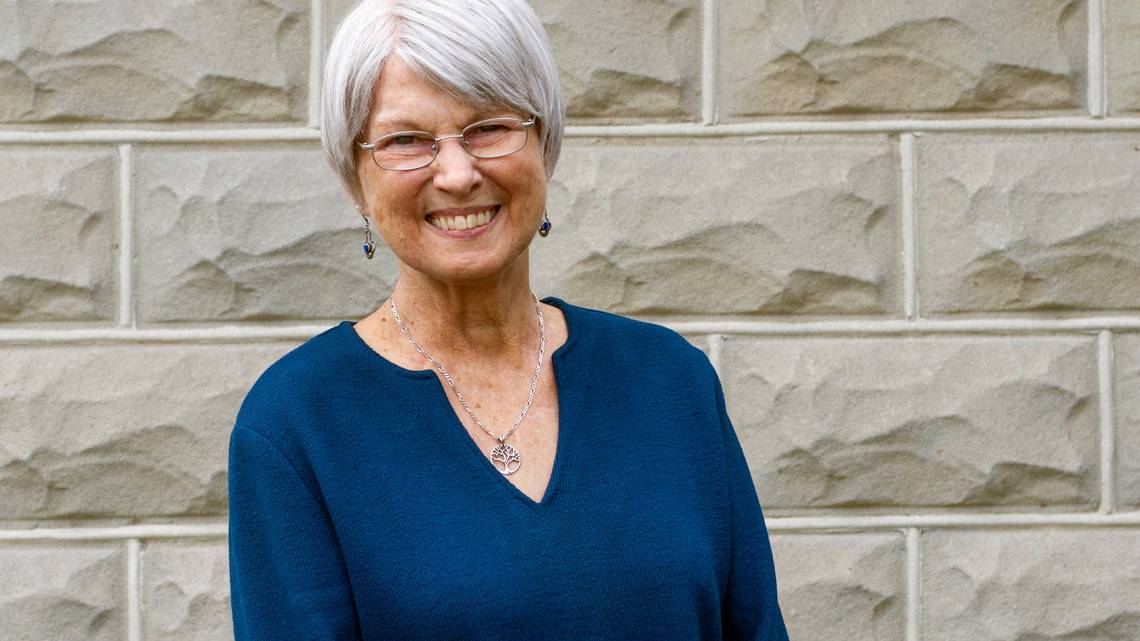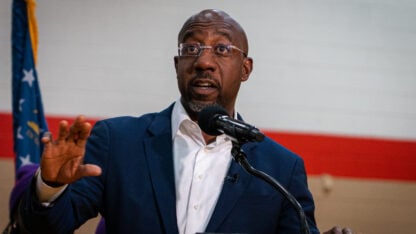Murphy Davis, a determined advocate for death row inmates and homeless people in Georgia, died on Thursday of complications related to cancer. She was 72.
Davis had been in hospice care in Baltimore, where she and her husband, Eduard Loring, lived after leaving Atlanta a few years earlier. Her death was confirmed by their daughter, Hannah Murphy Buc.
“Family surrounded her in fierce calm and peace. A long-haul, hard and beautiful journey is complete. We send thanksgiving to you and love beyond measure,” the family wrote on Facebook.
Davis, a Presbyterian minister, left an indelible imprint on Georgia, where for decades she was a regular visitor to death row inmates.
“It is not always an easy task to affirm that even a murderer is a child of God, but we know that it is true,” she told The Associated Press in 1986. “There is no act, no matter how vicious, that entirely blots out that identity.”
Among her numerous honors, she received a 1991 fellowship from the Petra Foundation, which recognizes the work of “unsung heroes” for social justice, and she is listed among Robert Shetterly’s Americans Who Tell The Truth.
Davis became a full-time activist as a theological student in the mid-1970s, after a key Supreme Court decision upheld the death penalty. Along with her husband and fellow Presbyterian minister, she made it her life’s work to fight against the death penalty, advocate for homeless people and press for racial and economic justice and the abolition of war.
In 1979, carrying a 10-day-old baby, they opened Atlanta’s first night shelter for the homeless, their daughter said. Then in 1981, the couple and a few others founded Open Door Community near downtown Atlanta, fashioned on Dorothy Day’s Catholic Worker movement. Based in a large, old home, they housed and fed many of the homeless people living on nearby streets while working for their larger social justice goals.
They organized protests that won concessions from the city of Atlanta and prompted the city’s public hospital to reverse its plans to impose a co-pay on its poorest patients. They also demonstrated at the state Capitol to oppose executions, and Davis made innumerable visits to the prisoners on Georgia’s death row. Eventually, she counted many of its inmates among her friends.
Anti-death penalty attorney Bryan Stevenson, who founded the Equal Justice Initiative, called Davis “a person with deep conviction and resolve, constantly looking for ways to bring light into dark places,” and wrote that she “has actually spent more time in jails and prisons than most people who have never been convicted of a crime.”
Stevenson, who met Davis and her colleagues as a young lawyer, wrote the foreword to Davis’ 2020 memoir “Surely Goodness and Mercy.” He said Open Door gave him and other activists a place to be nurtured in spirit as well as to think, talk and strategize.
“People from every different sort of life experience sat together at table and learned about one another and figured out how to share life,” said her daughter, now a nursing professor at the University of Maryland. “The opportunity to grow up with such a wide and loving perspective on the world and see how to work constantly for justice through that love and those relationships has informed everything that I’ve ever done. And she was the center of that.”
“She was the most deeply kind and loving and most courageous person,” her daughter said. “She also had the ability to listen and hear people who never experienced being listened to in their entire lives.”
The Open Door Community’s Atlanta home closed its doors in 2017 as the founders grew older and their neighborhood gentrified. By then, Davis had lived for more than two decades with Burkitt’s Lymphoma, a relatively rare and highly aggressive cancer that was supposed to give her just six months. Davis chronicled her excruciating cancer battle in her memoir, published just weeks before her death.
“In contrast to many people I’ve watched die who had been judged unworthy to live, I know that I will be extravagantly loved into death, by a remarkable partner and a myriad of family members and friends,” she wrote.
Davis’s survivors include her husband and their daughter, son-in-law Jason and granddaughter Michaela, and a sister and two brothers.









